PROGRAM FOR SUMMER 2024
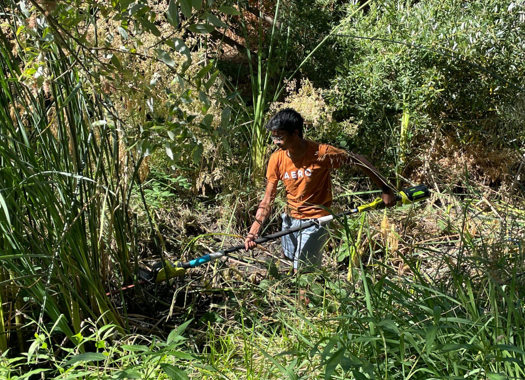 |
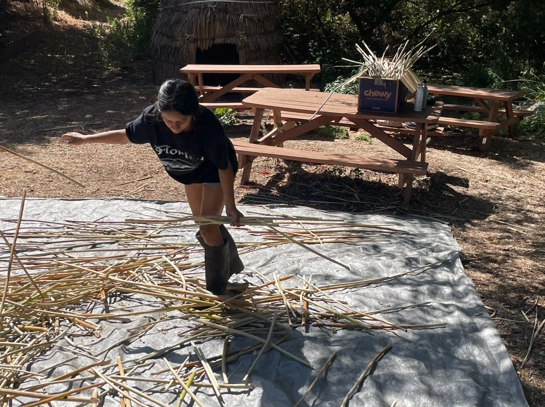 |
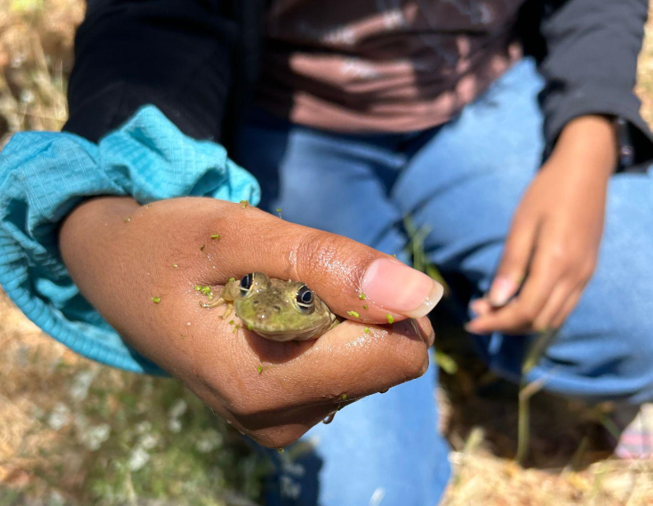 |
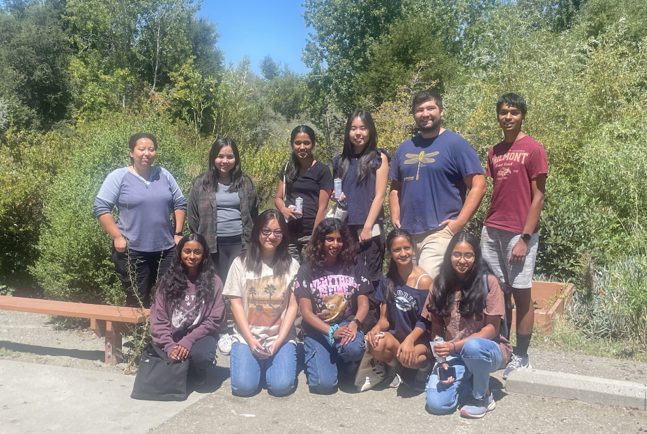 |
Interns:
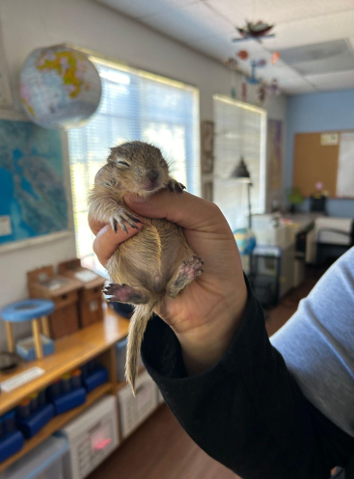 American High
School:
Divya
Ayyagari, grade 10
American High
School:
Divya
Ayyagari, grade 10
Mission San Jose High School
Irvington High School
James Logan High School:
Michelle Nguyen, grade 10
Two sessions made up the 7-week
internship, with Interns participating in the session(s) they were
interested in.
Session 1: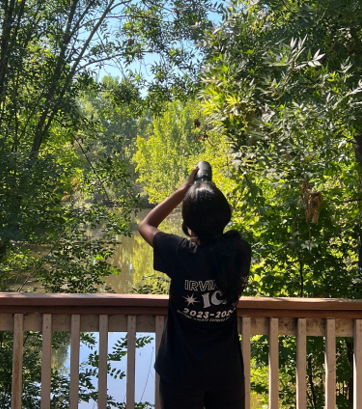
Interns had a focus on biological
and geological environmental parameters during the first 3-week session
of summer 2024. Interns met from June 11th to June 28th,
meeting for a total of six days of labs and six days of service. During
lab days interns learned about quantitative and qualitative science
through pH tests, field sketches, observational analysis of
microorganisms and insects, geologic mapping, and soil pH analysis.
Service projects ranged from tule
plant lab experiments to restoration and upkeep of nectar regions in the
butterfly meadow. Interns identified native and non-native plants in the
Butterfly Meadow region, removed invasives, cleaned up trails, and
replaced invasives with native or nectar-friendly plants to promote
pollinator habitat regions, such as butterflies, bees, and hummingbirds.
Session 2:
Interns had a focus on water
quality parameters and ecology during the second 3-week internship
session of summer 2024. Interns met for three weeks, from July 9th to
July 26th. Three days were devoted to lab sessions where interns got to
learn about freshwater ecology, botany, and wetland chemistry.
Activities included mapping out the food web through observational
analysis of organisms in the region, collection of leaves and
microscopic observations of plants, and use of a spectrophotometer for
nutrient analysis from water samples collected in Tyson Lagoon. Interns
sampled for phosphate, nitrate, and sulfate. Interns also collected
depth and turbidity depth measurements of Tyson Lagoon. Throughout lab
sessions, Interns safely learned how to kayak to collect samples and
conduct measurements.
Six service days were scheduled,
with service projects ranging from tule plant lab experiments to tule
plant cutting in the Muwekma Ohlone area. Interns tested pH ranges in
fish bowls to determine if tule plants would increase or decrease acidic
and basic pH ranges. Tule plants were cut and prepared for the incoming
fall field trips, where children will use the dried tule plants for
activities. In addition, Interns reinforced the preexisting tule hut,
recorded native and non-native plants in the surrounding areas, and
cleaned the creek.
Intern observations listed below:
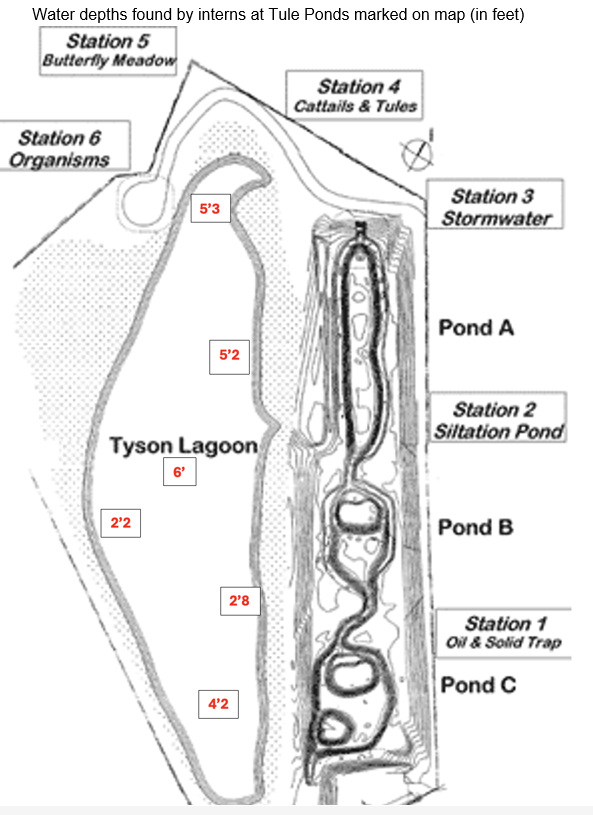
Results of spectrophotometer
readings:
Tule Ponds
|
Spectrophotometer |
Storm drain near Bart
Jungle
|
Pond C |
Pond B |
Pond A |
|
NO3 (mg/L) |
0.5 |
0.5 |
0 |
-0.2 |
|
SO4
(mg/L) |
4 |
23 |
31 |
28 |
Tyson Lagoon
|
Nutrients |
Entrance of Tyson Lagoon
|
Left of Tyson Lagoon |
Upper Tyson Lagoon |
Middle Tyson L |
Top right Tyson Lagoon |
|
NO3
(mg/L) |
0 |
N/A |
1.3
|
N/A |
0.1 |
|
SO4
(mg/L) |
24 |
74
|
32 |
32 |
N/A |
|
PO4
(mg/L) |
N/A |
0.01 |
0.02 |
0.04 |
0.01 |